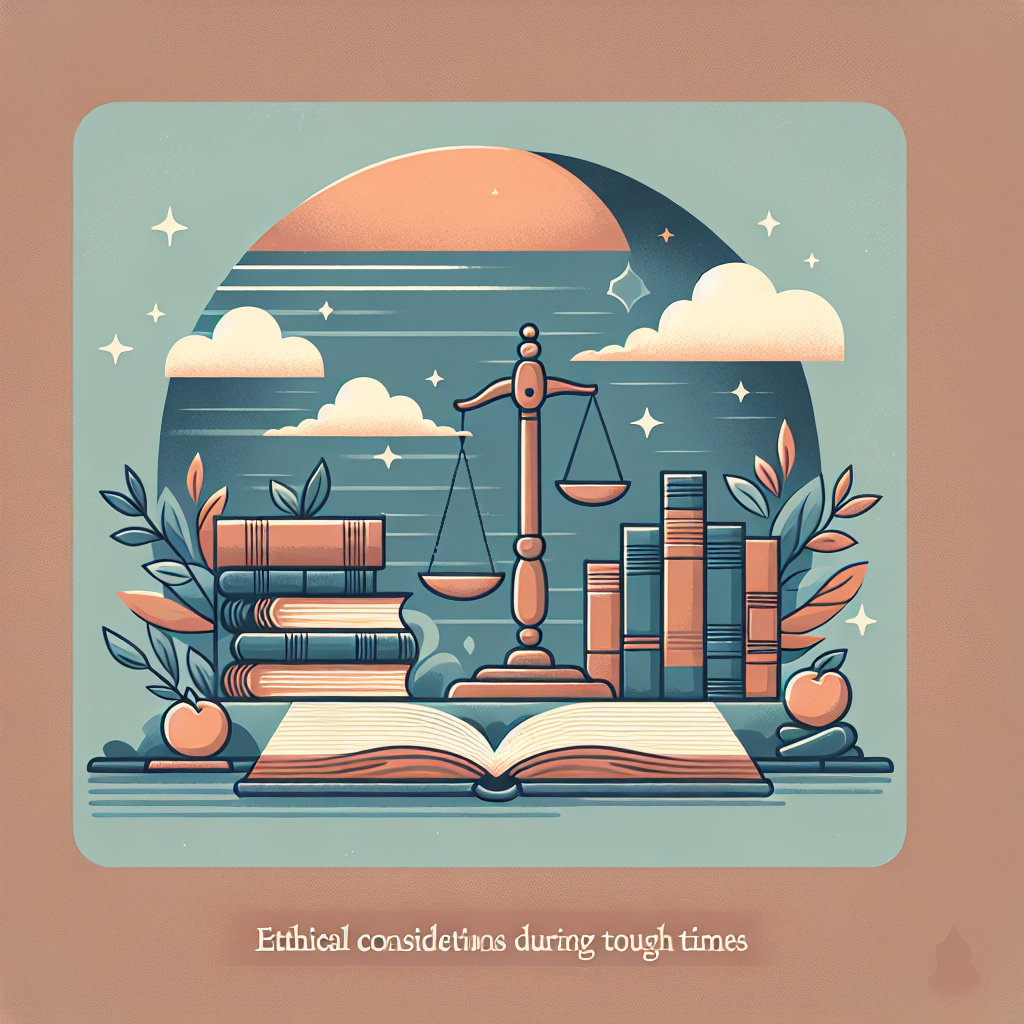Ethical Considerations in Divorce Mediation

Unlocking Success: Ethical Divorce Mediation Practices
The Importance of Ethical Divorce Mediation Practices
Divorce can be a highly emotional and contentious process, and it is important for all parties involved to approach it with integrity and fairness. This is where ethical divorce mediation practices come into play. In order for the mediation process to be successful and beneficial for all parties, it is crucial for mediators to adhere to a code of ethics and maintain a high level of professionalism. In this article, we will explore the various ethical considerations in divorce mediation and how they can promote a fair and successful outcome for all involved.
Understanding the Role of a Divorce Mediator
Before we delve into the ethical considerations of divorce mediation, it is important to understand the role of a divorce mediator. A divorce mediator is a neutral third party who helps couples reach a mutually agreeable resolution to their divorce. They do not make decisions for the couple, but rather facilitate communication and guide them towards a resolution that works for both parties. It is the mediator’s responsibility to maintain a neutral and impartial stance throughout the process.
Establishing a Code of Ethics for Divorce Mediators
The first step in ensuring ethical divorce mediation practices is to establish a code of ethics for mediators to follow. This code should outline the mediator’s responsibilities, obligations, and ethical principles that they must adhere to. It should also address potential conflicts of interest and confidentiality concerns. By having a clear code of ethics in place, mediators can maintain a professional and ethical standard in their practice.
Building Trust and Confidentiality in Mediation Sessions
Trust and confidentiality are crucial elements in the mediation process. It is the mediator’s responsibility to create a safe and confidential space for both parties to share their concerns and interests. This is essential for promoting open communication and facilitating a resolution that is fair to both parties. Mediators must maintain the confidentiality of all information shared during mediation sessions, unless otherwise agreed upon by both parties.
Maintaining Impartiality in Divorce Mediation
One of the key ethical considerations in divorce mediation is maintaining impartiality. As a neutral third party, it is the mediator’s duty to remain unbiased and not favor one party over the other. This can be challenging, especially in cases where one party may be more vocal or assertive. However, it is crucial for mediators to remain impartial in order to promote a fair outcome for both parties.
Addressing Power Imbalances in Divorce Mediation
In some cases, there may be a power imbalance between the two parties involved in a divorce. This could be due to various factors such as financial disparity or one party being more dominant in the relationship. It is the mediator’s responsibility to recognize and address these power imbalances in order to ensure a fair and equitable mediation process. This may involve providing support to the underrepresented party and ensuring that their voice is heard during mediation sessions.
Transparency in Financial Disclosures during Mediation
Another important ethical consideration in divorce mediation is transparency in financial disclosures. It is common for financial matters to be a major source of conflict in divorce cases. It is the mediator’s responsibility to ensure that both parties fully disclose all financial information in a transparent manner. This includes assets, debts, income, and expenses. This transparency is crucial for both parties to make informed decisions during the mediation process.
Protecting Children’s Interests in Divorce Mediation
Divorce can be particularly difficult for children involved, and it is the mediator’s responsibility to protect their interests throughout the process. This includes promoting a co-parenting plan that is in the best interests of the children, as well as considering their emotional and developmental needs. Mediators should also be mindful of the impact of their words and actions on the children involved and strive to create a positive and supportive environment for them during the mediation process.
Promoting Fairness and Equality in Negotiations
An ethical mediator should always strive to promote fairness and equality in negotiations between the two parties. This means ensuring that both parties have equal opportunities to express their concerns and interests, and that no one is coerced or pressured into agreeing to something that is not in their best interest. It is the mediator’s responsibility to ensure that both parties are treated with respect and dignity throughout the mediation process.
The Long-Term Benefits of Ethical Divorce Mediation Practices for Families
Choosing an ethical divorce mediator can have long-term benefits for families. By promoting fairness, equality, and open communication, ethical mediation practices can help to minimize the negative impact of divorce on both parties and their children. It can also help to foster a cooperative and amicable relationship between the two parties, which is especially important in cases where children are involved. Ethical mediation practices can also help to expedite the divorce process and save both parties time and money.
In conclusion, ethical considerations play a crucial role in the success and fairness of divorce mediation. By adhering to a code of ethics and promoting open communication, impartiality, and transparency, mediators can help to facilitate a resolution that works for both parties and has long-term benefits for all involved.



